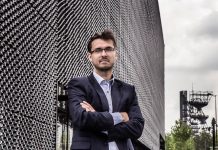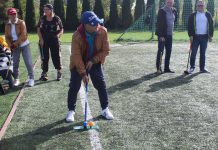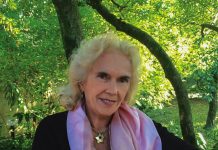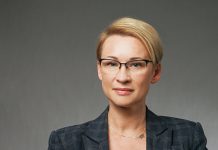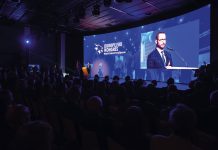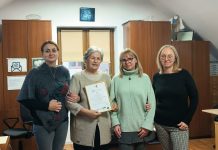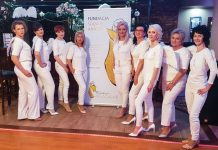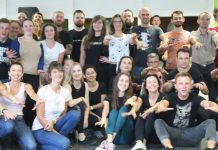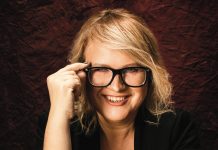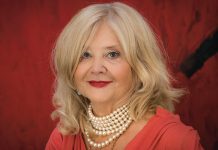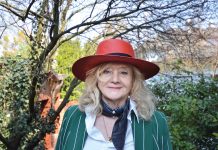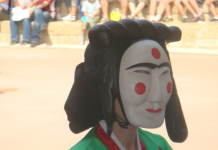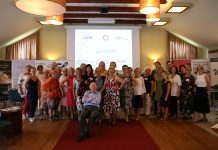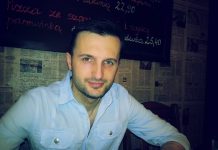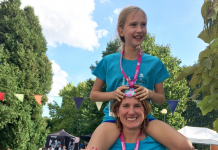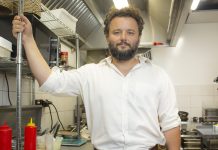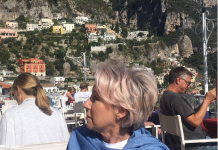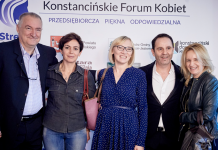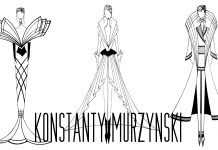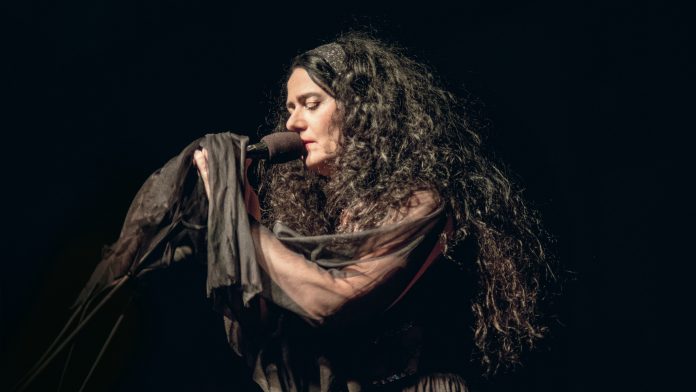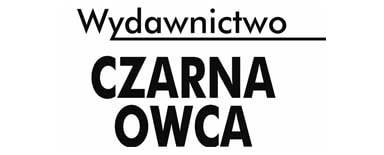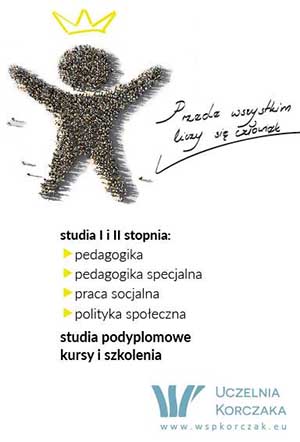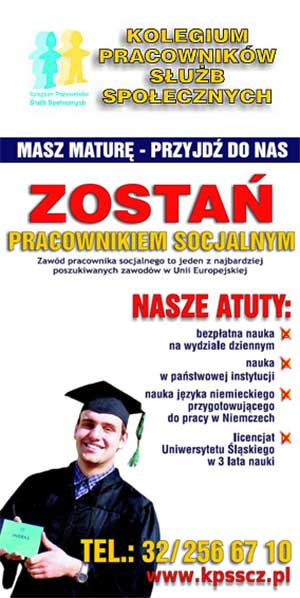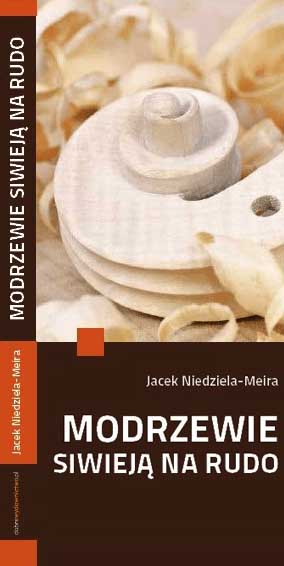An interview with Beata Czernecka – the artist of Piwnica Pod Baranami, singer, actress, religious educator, philosopher, awarded the title of Charismatic Woman in such categories as Woman in Arts and Education and Woman in Society. Despite having achieved so many successes in Poland and abroad, she feels there’s still much ahead of her – she is still waiting for her greatest theatrical or film role. She motivates women through art during her workshops, discovering their deeply hidden talents and strengthening their self-esteem and dignity.
Audiences have come to know you as an artist with an extraordinary, mesmerising voice timbre and a charismatic personality. Were you born a charismatic woman or did you become one?
Of course I was born one. The word ‘charisma’ means in Greek ‘the gift of grace, of doing things with talent, love and passion’. Originally, the term was used in a religious context – it was used to describe the behaviour of divinely-inspired people, that is, people supposedly endowed with a special, unique power by the Creator. I was planned by the Creator to be charismatic, and always have been one. I use my charisms and gifts and this makes me feel fulfilled. I can share goodness with other people. The most important things for me are human beings and relationships with people. This is how I understand charisma.

When did you start feeling like a charismatic person? Already at school?
How could I not! I was the president of Primary School No. 123 in Krakow, the city I was born and live to this day. I even got a diploma from the superintendent of the city of Krakow, which entitled me to be admitted to a secondary school without entry exams. But I chose an Italian language class, so I had to pass an exam. I took the maturity exam in Italian, good command of which often comes in handy.
What course of study did you choose?
I have a Master of Arts and a Master of Philosophy. I graduated from the National Academy of Theatre Arts in Krakow, formerly PWST (acting), the Jesuit University “Ignatianum” and the 2-year Vocal and Acting School, as well as a secondary music school. Also I used to study school and childcare pedagogy, but I’ve never finished it. My specialty is religious pedagogy and therapy through art.
You give lectures at the Pontifical University of John Paul II in Krakow, you worked at the Inka Dowlasz’s Therapy by Art Studio, at the SIEMACHA Centre, and also you are the Artist of the Piwnica Pod Baranami. When did you start singing?
I started singing during my kindergarten years, but I started my serious artistic career as a secondary school student in the schola of the Dominican Basilica. By the time I began my professional acting career, I had participated in numerous festivals and won many awards. In 1995, I performed at Piwnica pod Wyrwigroszem with my first solo recital, From Classics to Stage. Shortly afterwards, the premiere of Rimbaud’s Children took place, thanks to which I was ‘inscribed’ on the list of artists of the Piwnica pod Baranami.
In 1999, you greatly succeeded at the recital Zol zajn performed in Yiddish.
Jewish music and culture are close to my heart, so I studied Yiddish, prepared a recital and showed it at Piwnica pod Baranami, which was open to my proposal. Zol zajn was a great success, thanks to which I was the first Pole to perform in the finale of the IX Festival of Jewish Culture on Szeroka Street in Krakow (recording for TVP2) and I played my project in Yiddish on the main festival stage. I started working with The Cracow Klezmer Band and gave concerts all over Poland. The recital provides an opportunity to showcase my full vocal range, as well as dramatic and interpretive capabilities. It includes old folk songs, new songs written for me and also my samples as a composer and vocalises. It is wonderful that some of the songs from the Zol zajn concert have become a permanent part of the Piwnica pod Baranami Cabaret’s repertoire. This recital is synonymous with my soul, my heart is reflected in it like in a mirror. I am delighted that this success has continued for so many years and that people still want me to be heard in this repertoire.
Concerts featuring you have been released in the form of CD albums, you have also recorded choral liturgical songs with the schola and Dominican friars, and you have released solo albums.
Yes, the Yiddish Songs Concerto CD came out in 2005, the Winter Carols CD featuring Andrzej Seweryn’s Blask Aureoli in 2006, and Anioły codzienności in 2014.
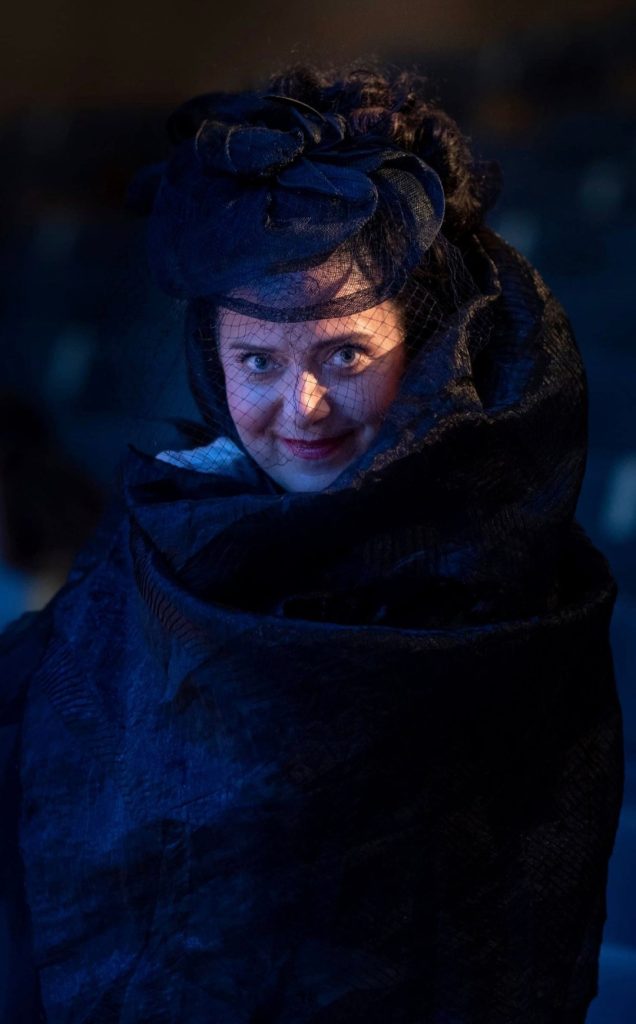
How did your theatre career develop?
Unfortunately, after graduating from the PWST, I did not submit my so-called papers to theatres. Today I miss the dramatic stage so much. The stage does not fully define me, although I love singing. My personality is divided between comedy and tragedy. Just like life, the duality of sacrum and profanum. I feel I am a part of the universe, I feel the presence of angels and a widely understood notion of charismatic existence.
You have performed on many stages in Poland and around the world both with Piwnica pod Baranami and solo.
I perform Jewish songs, hopefully on a world level. I have toured Europe, America and Canada. However, I have mainly travelled with Piwnica pod Baranami and the adventure continues to this day.
What are you most proud of as an artist?
I’m not so proud yet, and I’m still waiting for my biggest theatre or film role and that’s in front of me. But I appreciate my position. I feel happy and very recognised because I’m a part of the legendary Piwnica pod Baranami for 25 years now, and so far I have managed to artistically accomplish quite much in the Jewish movement.
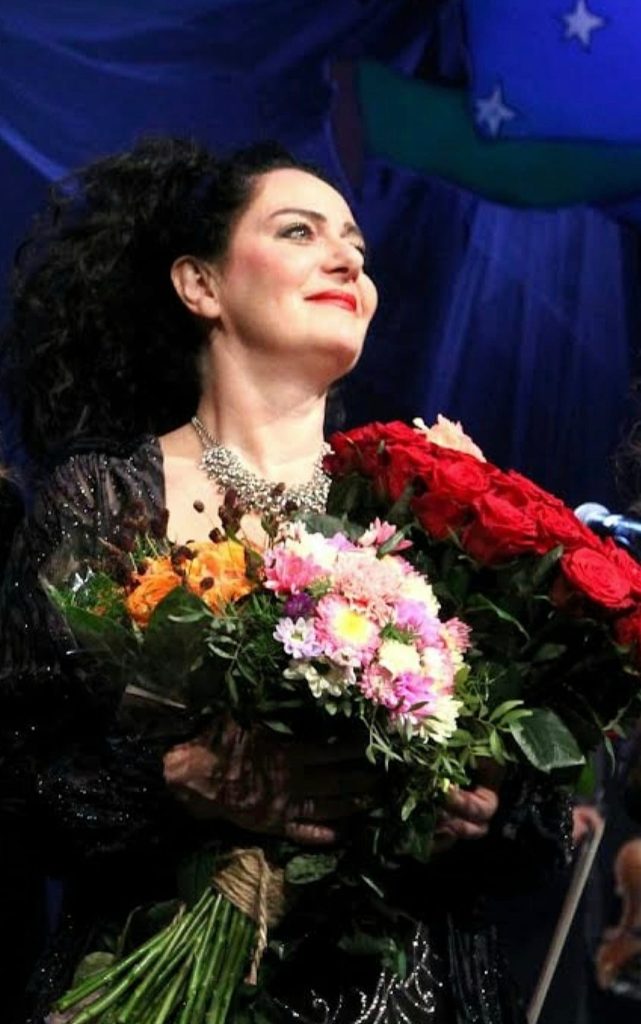
You don’t just live art, you are very active in other areas: in pastoral work, in the “Charismatic Renewal” movement, you work with various foundations and associations, you teach and have created a very interesting original project of workshops for women and several projects for seniors. You motivate through art and spirituality. How come you’re so passionate about social activities?
I feel I’m predisposed and talented for it. A few years ago Inka Dowlasz invited me to teach at the University of the Third Age, and I liked working with women. Among 60+people, I felt like a girl saying: if you smile, you are 10 years younger. I don’t have a family of my own, and when you don’t have a family, you live differently, you can spend more time on different kinds of activities. At the moment, I’m invited to give workshops in various centres in Poland to be attended by women of all ages.
What are they about?
These are intensive classes aimed at motivation through art. Art and faith give strength and empowerment, they open up to others, towards new challenges, strengthen one’s own sense of worth and dignity. I draw talent out of each person, because everyone has it. Even if I hear at the beginning that someone feels insecure, they achieve something fantastic by the end. I have developed my own system of theatre and vocal exercises that allow everyone to open up and discover something unique in themselves.
Are there women who feel they have artistic abilities and have not revealed them?
Not really, although some fall in love with these classes and discover that they would like to become actresses. Mostly, though, people come for company, to escape difficult home situations, with a baggage of experiences, who are mainly looking for self-esteem in the eyes of another person, who want to do something for themselves. Sometimes there come women with disorders, whom I recommend psychotherapy. There often come businesswomen who want to get something off their chest, like in therapy. Art is based on emotions, so I can’t imagine it being any other way. And, after all, each of us is also made up of a range of feelings.
How do you spend your free time when you have it?
I love independent films, so I often go to screenings of “Pod Barany”. I especially appreciate Krzysztof Kieslowski’s movies; I have watched all of them, including the less known ones. Apart from that, I devote myself to prayer, contemplation, spiritual support – because I am strongly in this and I believe that everyone should have a supervisor or spiritual teacher. It helps to strengthen the personality and opens you up to new possibilities.
Do you talk to God?
I do and I can’t imagine life without it.
And is God a woman or a man?
I think personification of such an important topic is not appropriate. The Bible says that God is caring like a mother. For me, it is simply a dad or a mum that I turn to. I believe in an everyday living and personal God. I also find him in relationships with other people, not just in the temple.
Is religion meaningful to you?
It is the most important thing in my life. I am very active in the charismatic renewal, in the church movement. For me, work and life only make sense when you act for another person, when you support them and share goodness with them. Any success, including these on stage, is only meaningful to me if it brings love and charisms.
Dorota Kolano
Beata Sekuła






